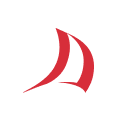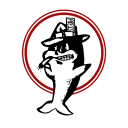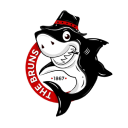When Kelly Dunfield (MN'03, C-NP'03) graduated from UNB’s inaugural class of the nurse practitioner program in 2003, she was thrilled to be back into clinical practice once again.
After years of nursing and health care experience in occupational health, surgery and emergency nursing in Saint John and her hometown of Sussex, she had moved into emergency room management and quality risk management. But when the new nurse practitioner program was announced at UNB, she jumped at the chance to do more with patients on the front line.
“The happiest part of my career has been as an NP,” she proclaims. I always wanted to return to school for a master’s, but this was even better because it put me back in clinical frontline care with patients.”
After working in primary care for 5 years as a nurse practitioner in Saint John, she returned to Sussex and started her own primary healthcare practice. Now with approximately 1400 patients, Kelly says that the number of nurse practitioners in the province has grown significantly since she began, and their contribution to healthcare in our current system is huge. “We provide primary care and can do so many things. UNB and the NANB (Nurses Association of New Brunswick) were leaders in pushing NPs forward as one of the ways to improve health care. Though there is still much to be done, there have also been a lot of good things happening over the last couple of decades. We don’t talk about those things enough.”
In addition to a hectic practice, Kelly and her husband John Gordon Dunfield (BBA'87) also run a business dedicated to making communities safer for those who suffer from anaphylaxis and opioid overdoses by educating the public on how to respond to these life-threatening conditions while waiting for emergency personnel. Be Ready Healthcare Inc. provides alarmed cabinets for easy access to epinephrine and naloxone.
"I just really love it when people are happy with their health and I’ve been able to contribute to that."
“I was sitting at a conference listening to a talk on allergies and I wondered why we don’t have epinephrine auto-injectors (EAI) everywhere in public. So, we did a pilot project in Sussex in 2014 with 28 public sites. We provided the free cabinets with epinephrine and before each site installed the cabinet, an educational session was held in order to provide them with the necessary knowledge to correctly recognize and respond to an anaphylactic reaction. Within a few short months of the launch of the pilot, a life was saved and we quickly realized the important potential this initiative had to save more lives.”
“We got to work quickly to expand. The main components of the alarmed cabinets are made in New Brunswick and we assemble them right here. My dad assembles most of them! We’ve refined the cabinets and received more orders across North America. We just sent them to all schools in the Fredericton area, in fact.”
Kelly says that when they received an order from New Brunswick Correctional Services to build naloxone cabinets, they realized the need was growing. I’m proud that I had the courage to start the trend of having publicly available epinephrine and naloxone. It has saved several lives and hopefully ends up being a standard of practice across the world.”
As if her schedule isn’t busy enough, Kelly also completed a medical aesthetics course and now offers services such as treatment for hair thinning, medical Botox for migraines and hyperhidrosis and TMJ pain, along with other innovative medical and therapeutic treatments.
“I just really love it when people are happy with their health and I’ve been able to contribute to that. When someone can make a leap into better health and a happier lifestyle, it’s very rewarding. There is great satisfaction in working with people, helping them and giving back to a community. I love this work.”




